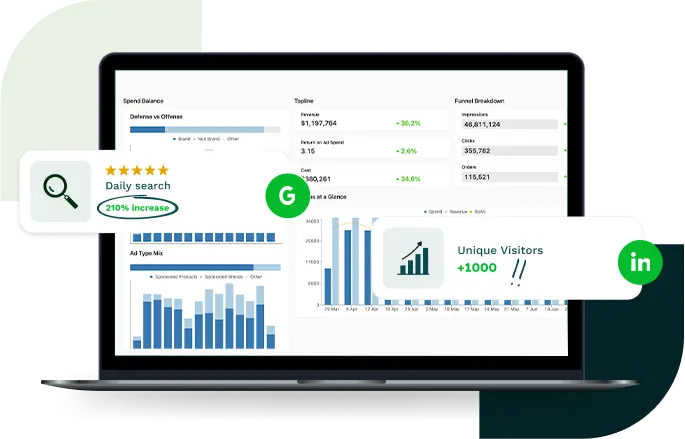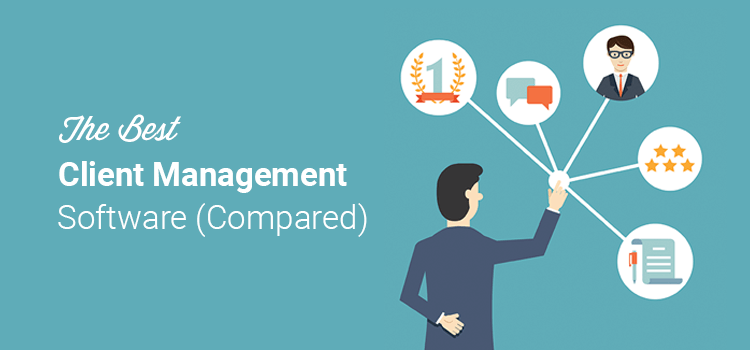In today’s digital landscape, traditional marketing methods are becoming increasingly ineffective. With shrinking attention spans and overflowing email inboxes, many businesses are shifting towards a more direct and impactful channel: mass SMS marketing. This approach leverages the ubiquitous nature of mobile phones to deliver personalized messages directly to customers’ fingertips, resulting in higher open rates and greater chances of engagement.
Toc
- 1. Understanding the Power of Mass SMS Marketing
- 2. Crafting Effective Mass SMS Marketing Campaigns
- 3. Related articles 01:
- 4. Choosing the Right Mass SMS Marketing Platform
- 5. Automating Your Mass SMS Marketing Campaigns
- 6. Measuring and Optimizing Your Results
- 7. Related articles 02:
- 8. Frequently Asked Questions (FAQ)
- 9. Conclusion
Understanding the Power of Mass SMS Marketing
Mass SMS marketing provides small businesses with a unique opportunity to connect with their audience effectively. Here are some key advantages:
High Open Rates
One of the standout features of mass SMS marketing is its exceptional open rates, which can soar to an impressive 98%. In comparison, email’s average open rate hovers around 20%. This means that an SMS message is five times more likely to be seen than an email. SMS messages are typically opened within minutes of being received, making this channel invaluable for small businesses aiming to capture attention quickly.
Personalization
Mass SMS marketing excels in delivering personalized content tailored to individual customer preferences. Businesses can leverage customer data such as purchase history, demographics, and browsing behavior to segment their audience. For example, a clothing retailer might send a targeted message about a new line of athletic wear to customers who have previously purchased similar items. This approach ensures that the message is relevant and timely, increasing the likelihood of engagement and fostering customer loyalty.
Cost-Effectiveness
Compared to traditional marketing channels, mass SMS marketing is remarkably cost-effective. The cost per message for SMS marketing is typically lower than that of other marketing channels. A 2023 study found that the average cost per SMS message is around $0.04, while the cost per email can range from $0.02 to $0.05. This lower cost allows small businesses to reach a wider audience without the hefty price tag associated with print advertising or extensive digital campaigns, enabling efficient resource allocation while maximizing outreach.
Immediate Delivery
SMS messages deliver information instantly, offering a critical advantage for businesses. The speed of SMS delivery allows for effective communication of time-sensitive offers or updates. This immediacy can significantly enhance customer engagement and drive prompt responses, making it an essential tool for small businesses looking to capitalize on timely opportunities.
Measurable Results
Mass SMS marketing platforms provide robust analytics that allow businesses to track key performance metrics. By monitoring open rates, click-through rates, and conversion rates, small businesses can gain valuable insights into the effectiveness of their campaigns. This data-driven approach enables continuous improvement and optimization of marketing strategies, ensuring that businesses can refine their tactics based on real-time feedback.
Crafting Effective Mass SMS Marketing Campaigns
To harness the full potential of mass SMS marketing, small businesses must adopt a strategic approach to campaign creation. Here are essential steps to consider:
Defining Your Objectives
Clearly defined objectives are the foundation of successful mass SMS marketing campaigns. Whether the goal is to drive sales, enhance brand awareness, or boost customer engagement, having specific targets allows businesses to tailor their messaging accordingly. For instance, a local retail store might focus on promoting special events or new product launches, ensuring that their campaigns align with their overarching business goals.
Segmenting Your Audience
Audience segmentation is crucial for maximizing the impact of mass SMS marketing. By categorizing customers based on demographics, purchase history, or behavioral data, businesses can deliver more relevant messages. For example, a clothing store could segment its audience into groups based on age or style preferences, ensuring that promotions resonate with the right customers. This targeted approach not only enhances engagement but also fosters a sense of connection between the brand and its audience.
1. https://langdongtamhon.blog/unlock-your-potential-with-an-online-marketing-masters-degree/
2. https://langdongtamhon.blog/business-marketing-degree-a-guide-for-prospective-students/
3. https://langdongtamhon.blog/a-comprehensive-guide-to-sendgrid-email-marketing-for-developers/
4. https://langdongtamhon.blog/finding-the-right-search-engine-marketing-agency-for-your-business/
5. https://langdongtamhon.blog/optimizing-marketing-and-advertising-for-small-business-growth-in-2024/
Crafting Compelling Messages
Effective SMS messages are concise, engaging, and feature a clear call-to-action. Businesses should aim for brevity while ensuring that the message remains compelling. For instance, instead of lengthy promotions, a quick text like “Flash Sale: 20% off today only! Use code FLASH20” can capture attention and encourage immediate action. Avoiding overly promotional language is key to maintaining customer interest and ensuring that messages are well-received.
Timing Your Campaigns Strategically
The timing of SMS campaigns can significantly influence their success. Businesses should consider customer preferences and industry best practices when scheduling messages. Sending promotional texts during peak shopping hours can lead to higher engagement rates. Additionally, avoiding excessive messaging is vital to prevent customer fatigue and opt-outs, ensuring that the audience remains receptive to future communications.
Choosing the Right Mass SMS Marketing Platform
Selecting an appropriate platform is essential for maximizing the effectiveness of mass SMS marketing efforts. Here are critical factors to consider:
Ease of Use and Accessibility
A user-friendly interface is paramount, especially for small businesses without extensive technical expertise. Platforms that offer intuitive features for creating, scheduling, and managing campaigns empower teams to execute their marketing strategies effectively, allowing them to focus on what matters most: connecting with customers.
Robust Features and Integrations
Choosing a platform that provides a comprehensive suite of features can enhance the overall marketing experience. Essential functionalities include contact management, message personalization, analytics, and integrations with existing business tools such as CRM systems. Platforms that offer these capabilities enable businesses to streamline their marketing efforts and create a cohesive customer experience.
Compliance and Regulatory Adherence
Compliance with regulations, such as the Telephone Consumer Protection Act (TCPA) in the United States, is critical for protecting businesses and maintaining customer trust. When selecting a mass SMS marketing platform, ensure it prioritizes compliance and provides resources to help businesses adhere to relevant regulations, safeguarding both the business and its customers.
Scalability and Pricing
As small businesses grow, their marketing needs may evolve. Opting for a platform that offers flexible pricing options and scalability ensures that businesses can expand their mass SMS marketing efforts without financial strain. Many platforms provide tiered pricing structures to accommodate varying message volumes, allowing businesses to choose a plan that fits their unique needs.
Automating Your Mass SMS Marketing Campaigns

Automation can significantly enhance the efficiency and effectiveness of mass SMS marketing campaigns. Here are some automation strategies to consider:
Autoresponders for Instant Engagement
Autoresponders are powerful tools that allow businesses to send personalized messages automatically in response to customer actions, such as sign-ups, inquiries, or purchases. This technology can significantly enhance customer interaction by ensuring that responses are timely and relevant. For example, a business could set up an autoresponder to send a warm welcome message to new subscribers, offering them valuable information about products or services and perhaps even including a special discount. This immediate engagement not only provides instant value but also establishes a positive customer experience, fostering a sense of connection and loyalty right from the start.
Drip Campaigns for Nurturing Leads
Drip campaigns are strategic marketing efforts that involve sending a series of targeted SMS messages over time to nurture leads and guide them through the sales funnel in a thoughtful manner. For instance, a fitness studio might implement a well-crafted drip campaign that sends out motivational messages, health tips, and class schedules to new sign-ups. This ongoing communication serves to keep potential customers engaged and informed about what the studio has to offer, ultimately encouraging them to book a class. By providing relevant content and reminders, this method not only helps maintain interest but also increases the likelihood of conversion as leads feel more connected and informed about their options.
Integrations for Seamless Workflows
Integrating mass SMS marketing platforms with other business tools can significantly streamline workflows and enhance customer experiences, making operations more efficient. For example, connecting an SMS platform with an e-commerce system can automate essential processes such as order confirmations, shipping updates, and customer feedback requests. This level of automation ensures that customers receive timely information about their purchases, which can greatly improve overall satisfaction and trust in the brand. Moreover, seamless integration can lead to better data collection and analysis, allowing businesses to refine their marketing strategies based on customer behavior and preferences, ultimately leading to enhanced engagement and loyalty.
Measuring and Optimizing Your Results
To ensure the success of mass SMS marketing campaigns, businesses must continuously measure and optimize their results. Here are key strategies:
1. https://langdongtamhon.blog/finding-the-right-search-engine-marketing-agency-for-your-business/
2. https://langdongtamhon.blog/optimizing-marketing-and-advertising-for-small-business-growth-in-2024/
3. https://langdongtamhon.blog/a-comprehensive-guide-to-sendgrid-email-marketing-for-developers/
4. https://langdongtamhon.blog/unlock-your-potential-with-an-online-marketing-masters-degree/
5. https://langdongtamhon.blog/business-marketing-degree-a-guide-for-prospective-students/
Leveraging Analytics for Continuous Improvement
Tracking key metrics, such as open rates, click-through rates, and conversion rates, is essential for evaluating the performance of mass SMS marketing efforts. These metrics provide insights into how well your messages are resonating with your audience. Utilizing robust analytics and reporting tools allows businesses to identify trends over time, assess the effectiveness of different messaging strategies, and make informed, data-driven improvements. For instance, analyzing the time of day when messages achieve the highest engagement can inform future send times for maximum impact. This ongoing evaluation process is crucial as it helps refine future campaigns, ensuring they are more targeted and relevant, ultimately maximizing their overall effectiveness and return on investment.
Embrace A/B Testing for Optimization
A/B testing is a powerful and strategic method for optimizing SMS campaigns. By experimenting with different message variations, calls-to-action, and targeting strategies, businesses can determine the most effective approaches to engage their audience. For example, testing two different promotional messages—one with a strong discount offer and another highlighting a limited-time event—can reveal which type of incentive generates higher engagement. This insight allows businesses to refine their strategies accordingly, enhancing overall campaign performance and ensuring that future messages are tailored to meet the preferences and interests of their target audience.
Solicit Feedback for Continuous Improvement
Customer feedback is an invaluable resource for enhancing SMS marketing campaigns. Businesses can gather feedback through surveys, polls, and open-ended questions, which provide insights into customer preferences, pain points, and what resonates most with their audience. This information can be instrumental in making necessary adjustments to messaging and campaign strategies. Moreover, actively soliciting feedback not only improves future campaigns but also strengthens the relationship between businesses and their customers, fostering a sense of trust and engagement. When customers see that their opinions matter and are reflected in marketing efforts, it can lead to increased loyalty and long-term success for the brand.
Frequently Asked Questions (FAQ)

Q1: What are some of the best mass SMS marketing platforms for small businesses?
A1: Some reputable platforms for mass SMS marketing include App0, Textedly, SimpleTexting, and EZ Texting. These platforms offer user-friendly interfaces, robust features, and flexible pricing tailored to small businesses.
Q2: How can I get started with mass SMS marketing for my small business?
A2: To begin, select a suitable platform, obtain necessary permissions, build your contact list, and craft your initial campaign. Most platforms provide onboarding guides and customer support to facilitate the process, ensuring a smooth start to your SMS marketing journey.
Q3: How much does mass SMS marketing typically cost for small businesses?
A3: Costs for mass SMS marketing can vary based on the platform and message volume. Generally, small businesses can expect to pay between $20 and $79 monthly for plans covering 500 to 2,000 messages, with additional messages costing around $0.04 each.
Q4: Can you provide examples of successful mass SMS marketing campaigns for small businesses?
A4: One successful example is a local restaurant that used mass SMS to announce daily specials and events, resulting in a 25% increase in customer engagement. Another example is an e-commerce store that utilized automated SMS workflows for abandoned cart reminders, achieving a 10% boost in conversions.
Q5: How can I measure the success of my mass SMS marketing campaigns?
A5: To assess campaign success, focus on tracking key metrics such as open rates, click-through rates, conversion rates, and customer response rates. Many SMS marketing platforms offer comprehensive analytics tools for performance evaluation, enabling businesses to make informed decisions.
Conclusion
Mass SMS marketing presents a powerful opportunity for small businesses to engage their customers, drive sales, and achieve measurable results. By leveraging the immediacy and personalization of SMS, businesses can cut through the noise and foster meaningful connections with their audience.
Choosing the right platform, crafting effective campaigns, and continuously measuring results are crucial steps toward unlocking the full potential of mass SMS marketing. As we move into 2024, small businesses should embrace this innovative approach to enhance their outreach and strengthen customer relationships. Explore the resources and tools available in the market to begin your journey into mass SMS marketing today.

